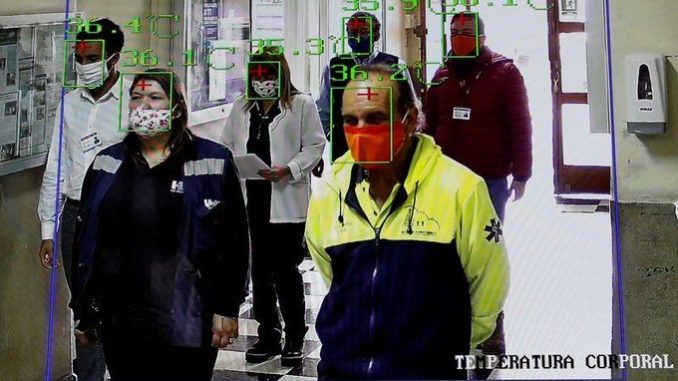
SANTIAGO – Chile’s healthcare system is under strain and “very close to the limit,” President Sebastian Piñera admitted on Sunday, as the number of confirmed novel coronavirus infections approaches 74,000 after a rapid increase in recent days.
The Health Ministry’s latest report showed 4,895 new cases of infection were detected in the previous 24 hours, with the vast majority — 4,428 — displaying symptoms, bringing the total to 73,997.
In the past 24-hour period, 43 more patients died of the disease. The death toll is at 761.
“We are very close to the limit because we have had a very large increase in the needs and demands for medical care, and for intensive care unit beds and ventilators,” Piñera said during a visit to a hospital in Santiago, which has the highest concentration of cases.
More than 1,000 people have been hospitalized for disease associated with the coronavirus, according to the government.
Chile, the world’s top copper producer, confirmed its first case of coronavirus in early March.
A third of Chile’s population of about 19 million is under mandatory quarantine after the government put Santiago and several other cities under lockdown.
The South American country has been working to strengthen its healthcare infrastructure to deal with the increase in admissions due to the outbreak.
On Sunday, President Pinera, accompanied by Health Minister Jaime Manalich and Deputy Health Minister Arturo Zuniga, toured a new field hospital erected alongside Sotero del Rio Hospital in the capital Santiago and metropolitan area.
Pusimos en marcha el Hospital Sótero del Río, el primero de los 5 Hospitales Modulares que agregarán 500 camas al Sistema de Salud.
Esto permitirá atender mejor las necesidades de los pacientes.
Hoy necesitamos, más que nunca, la responsabilidad y solidaridad de todos. pic.twitter.com/piAMHM3rLZ
— Sebastian Piñera (@sebastianpinera) May 24, 2020
The field hospital is the first of five temporary facilities to be erected by the government to alleviate the burden on standard hospitals. The temporary units are designed to attend to non-COVID-19 patients who would otherwise be occupying needed hospital beds.
Some 13.7 million U.S. dollars was invested in the first facility, which provides an additional 100 beds in a 1,500-square-meter area covered in tents, and will be fully operational by June.
“The great advantage of installing field hospitals in the metropolitan area, where we have the most need and demand for critical-care beds, is that it avoids having to displace patients and allows us to care for them as close to their homes and their families as possible,” Pinera said.
According to Zuniga, the nation’s hospital beds are currently at 85 percent capacity.



